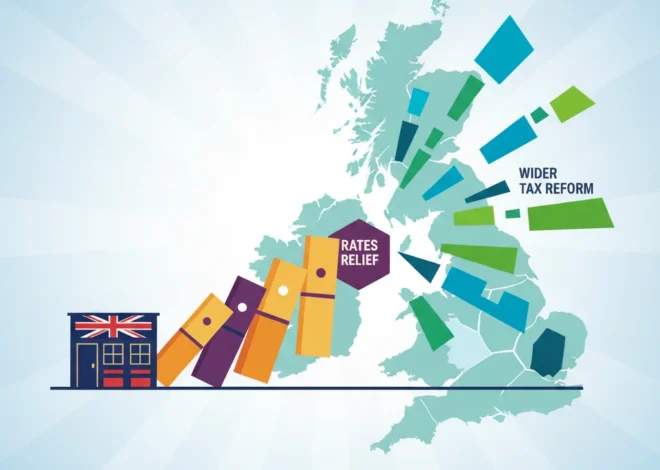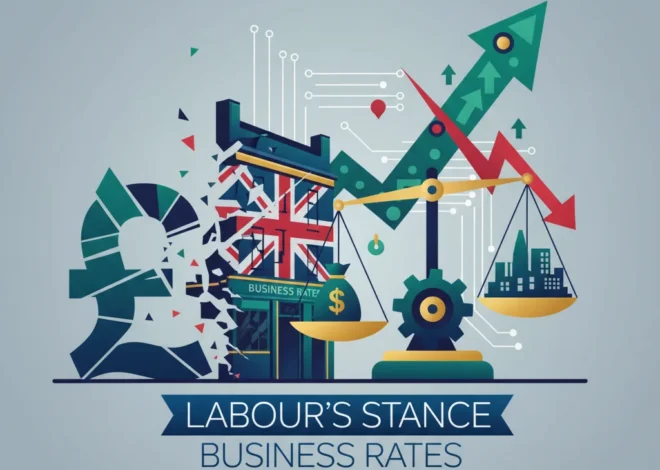
UK’s High-Stakes Gamble: Are New Immigration Rules Choking the Fintech and Finance Economy?
The Paradox of Ambition: The UK’s Quest for Tech Supremacy Clashes with New Realities
The United Kingdom has long positioned itself as a global titan in finance and a burgeoning superpower in financial technology. London is frequently hailed as a world-leading fintech hub, a crucible where innovation, capital, and talent converge. Yet, a recent and dramatic overhaul of the UK’s immigration policy threatens to unravel this carefully woven narrative. While aimed at the headline goal of reducing net migration, these reforms risk creating a complex, restrictive environment that could starve the nation’s most dynamic sectors—including fintech, banking, and the broader tech economy—of the very lifeblood they need to thrive: global talent.
This growing concern was succinctly captured in a recent letter to the Financial Times by Atinna Ma, who argued that these reforms risk adding “unnecessary complexity” and undermining the UK’s competitiveness. This sentiment is not an isolated one; it echoes across boardrooms, startup incubators, and trading floors. The core question for investors, business leaders, and finance professionals is stark: Is the UK inadvertently closing its doors to the world’s brightest minds, and what will be the ultimate cost to its economy and stock market?
Deconstructing the New Rules: A Look at the Drastic Policy Shift
To understand the depth of the challenge, it’s essential to examine the specific changes that came into effect in April 2024. The government has fundamentally altered the landscape for businesses seeking to hire international talent through the Skilled Worker visa route. The two most significant changes are a sharp increase in the minimum salary threshold and the replacement of the broad Shortage Occupation List (SOL).
These aren’t minor tweaks; they represent a seismic shift in policy. The general salary threshold for a Skilled Worker visa has jumped by nearly 50%, a move that dramatically raises the cost and complexity of hiring from abroad. Furthermore, the Shortage Occupation List, which previously offered a 20% salary discount for roles the UK struggled to fill, has been abolished and replaced by a much narrower Immigration Salary List (ISL). According to the UK Home Office, these measures are part of a five-point plan to deliver the “biggest ever cut in net migration.”
The table below illustrates the stark contrast between the old and new systems:
| Policy Area | Rules Before April 2024 | Rules After April 2024 |
|---|---|---|
| General Salary Threshold | £26,200 per year | £38,700 per year (a 48% increase) |
| “Going Rate” for Occupations | Based on the 25th percentile of earnings | Raised to the 50th percentile (median) of earnings |
| Shortage Occupation List (SOL) | A broad list of occupations with a 20% salary discount on the threshold | Abolished and replaced by the much shorter Immigration Salary List (ISL) |
| Health and Care Worker Visa | Exempt from the salary increase; care workers could bring dependants | Still exempt from the salary increase, but care workers can no longer bring dependants |
This new framework creates immediate hurdles, especially for businesses outside of London and for startups and scale-ups in the financial technology space that rely on a blend of equity, competitive salaries, and the promise of growth to attract talent.
The Fintech Dilemma: Stifling the Engine of the UK’s Modern Economy
The UK’s fintech sector is a crown jewel of its modern economy. A report from Innovate Finance highlighted that UK fintech firms attracted $5.1 billion in investment in 2023, second only to the United States. This industry, which spans everything from digital banking and payments to blockchain applications and algorithmic trading, is fundamentally built on specialized, often scarce, technical expertise.
This is where the new immigration rules create a direct and perilous conflict. Many crucial roles in fintech—such as blockchain developers, AI/ML engineers, and cybersecurity specialists—require a global talent pool. While these roles often command high salaries at established financial institutions, the situation is different for the thousands of startups and scale-ups that form the backbone of the sector’s innovation.
These high-growth companies often cannot compete with the pay scales of a major investment bank. They attract talent with stock options, a dynamic culture, and the opportunity to build something new. The £38,700 threshold may seem manageable for a senior role in London, but for a promising junior developer in Manchester or a mid-level data analyst in Edinburgh, it can become an insurmountable barrier for the hiring company. This policy risks creating a two-tiered system where only the largest, most established players in banking and finance can afford to tap into the global talent market, stifling the very challengers that drive the industry forward.
The Ripple Effect: From Investment Climate to the Stock Market
The impact of these immigration changes will not be confined to the fintech sector. The reverberations will be felt across the entire UK economy, influencing everything from foreign direct investment to the performance of the stock market.
For international investors, a key metric when assessing a country’s potential is its access to a skilled workforce. A constrained talent pipeline is a significant operational risk. When a company’s growth plans are hampered by an inability to hire the right people, it becomes a less attractive destination for investing. Venture capitalists may think twice about funding a UK-based startup if there’s a high degree of uncertainty around its ability to scale its engineering team. This friction could divert billions in potential investment to other, more welcoming, global hubs.
This has a direct line to public markets. Many of the UK’s largest listed companies, from banking giants to tech conglomerates, are in a constant battle for talent to drive their digital transformation initiatives. A slowdown in their ability to innovate and compete globally due to hiring restrictions could impact their growth forecasts, profitability, and ultimately, their stock market valuations. A healthy economy requires dynamism, and dynamism is fueled by people. By making it harder to attract those people, the UK risks engineering a period of economic stagnation. The field of economics is clear that human capital is a primary driver of long-term growth; policies that restrict its flow are, by definition, a headwind. As the original letter in the Financial Times suggests, this isn’t just about complexity—it’s about competitiveness.
Benjamin Franklin's Ghost in the Modern Economy: Reviving the Case for a Land Value Tax
The Global War for Talent: Is the UK Withdrawing from the Race?
It is crucial to view the UK’s policy shift not in a vacuum, but in the context of fierce global competition. While the UK tightens its rules, other nations are rolling out the red carpet for skilled professionals. Canada’s Global Skills Strategy aims to process visa applications for in-demand tech roles in as little as two weeks. Germany has reformed its immigration laws to make it easier for skilled workers to move there, and countries like the UAE and Singapore are actively creating visa programs tailored to tech entrepreneurs and digital nomads.
This is a zero-sum game. A brilliant AI researcher who finds the path to the UK too bureaucratic or expensive will not simply vanish; they will accept a competing offer in Toronto, Berlin, or Amsterdam. The UK’s loss is directly its competitors’ gain. By unilaterally raising the barrier to entry, the UK is choosing to compete for talent with one hand tied behind its back. This self-imposed handicap could have lasting consequences for its long-term standing in key global industries like finance, life sciences, and artificial intelligence.
The NHS on Life Support: A Financial Diagnosis and Prescription for Tech-Fueled Recovery
Conclusion: A Crossroads for the UK Economy
The UK stands at a critical juncture. The ambition to be a global hub for finance, technology, and innovation is a laudable one, but it cannot be achieved without a policy framework that supports it. The recent immigration reforms, while politically motivated, appear to be in direct opposition to these economic goals.
By significantly raising the financial bar for skilled workers, the government has introduced a formidable obstacle for the very businesses—startups, scale-ups, and innovators—that are supposed to power the future of the UK economy. It threatens to slow the momentum of the world-class fintech sector and sends a chilling message to the global talent pool that the UK is becoming a more difficult place to live and work.
A more nuanced approach is urgently needed—one that balances the political objective of managing migration with the non-negotiable economic imperative of attracting and retaining the world’s best and brightest. Without this balance, the UK risks turning its “open for business” sign into a “please try next door” notice, with profound consequences for its long-term prosperity. The critical question remains: can policy be adjusted before the damage to the UK’s economic engine becomes irreversible?


